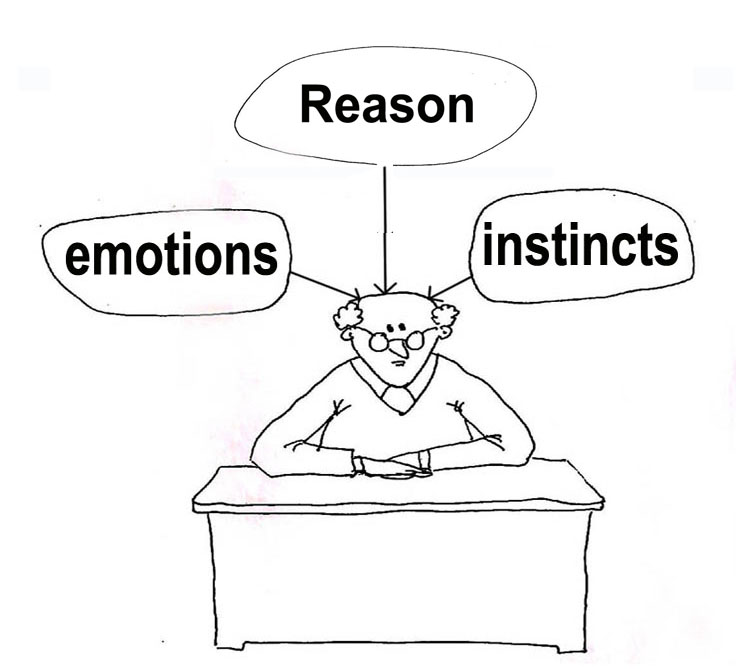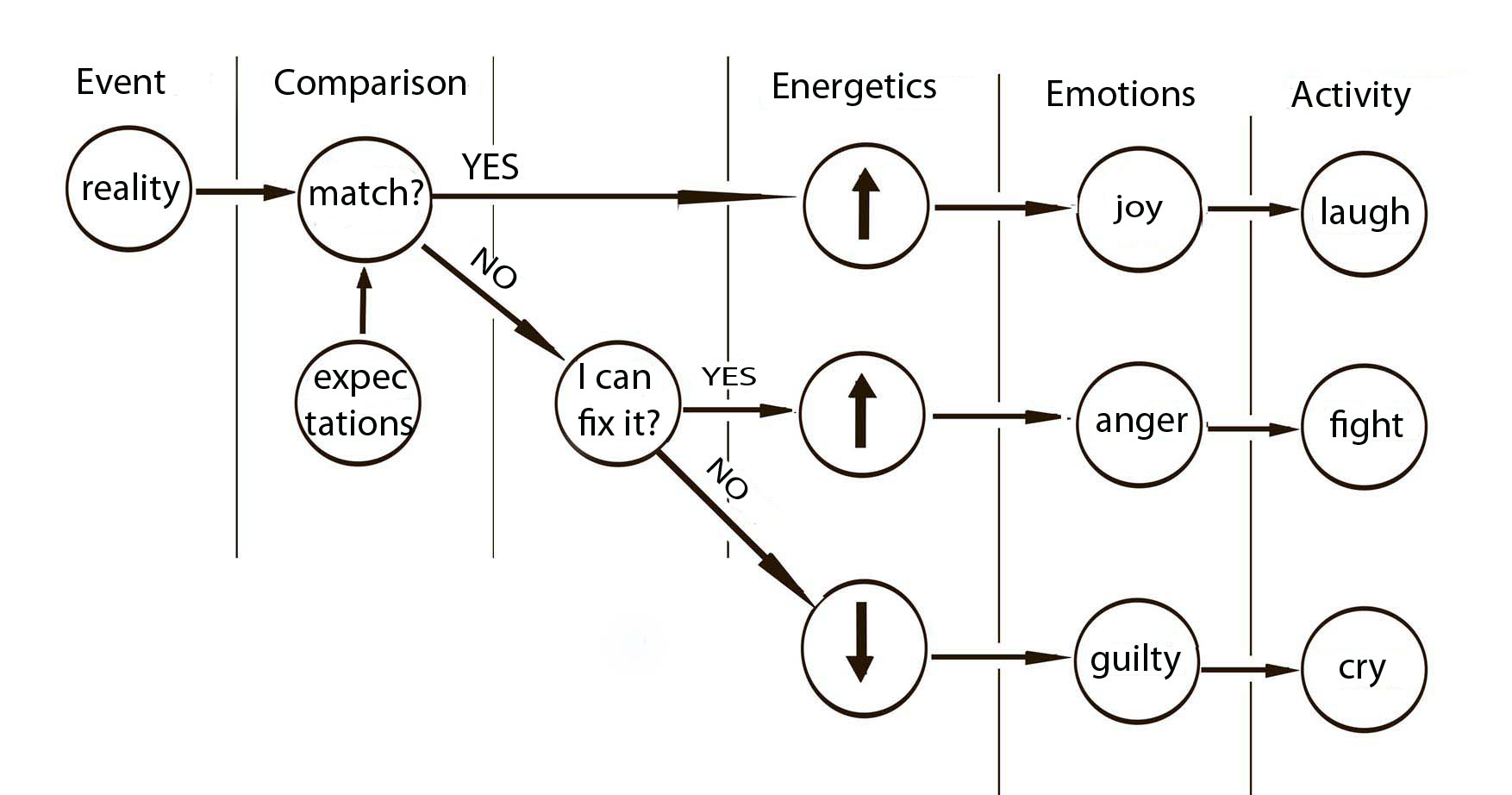The Technology of Personality Change as an Instrument for Creating Harmonious Relations and
Increasing Productivity in the Work-force of a Company.
The present situation
Many companies strive to create a positive atmosphere for their employees – a factor which acts as a spur to increased productivity. For example, in the USA it has become fashionable to do yoga to improve concentration and its effectiveness as a result. But it is very outdated and inefficient technology.
But you can’t fool human nature, people do at times experience negative emotions which have to be concealed – hence the big demand for the help of psychoanalysts in advanced countries.
What is proposed
It is proposed to introduce into the corporate culture of a company a process of controlled, autonomous personality changes in the employees. As a result, the negative consequences of feelings will be avoided and there will be a marked decrease in the need for psychological support. The energy-levels and positivity of employees will be improved, the sources of many grievances, both hidden and overt, will disappear, the incidence of illnesses will be reduced and the motive to succeed will be strengthened.
What’s new about this.
A fundamentally new Technology for bringing about autonomous changes in personality has been developed and tested.
The basis of the Technology is a new model of the process whereby human beings make decisions. According to this model, a person invariably makes decisions under the influence of Emotions, Instincts and Reason. These mechanisms, which direct human behaviour, compete with one another.
What are instincts?
Instincts are innate behavioural programs whose function is to help a human being survive in conditions which he perceives as threatening. Accordingly, instincts exert a very powerful influence on people’s behaviour in under-developed countries with low income levels, poor medical care, etc. But people in countries with a high standard of living can also feel themselves in danger when they fail to adapt to a new environment.
In advanced countries, where people feel secure, the instincts are almost never required, so people make decisions primarily under the influence of Reason.
Only three instincts exert a real influence on human behaviour: the survival instinct, the instinct to procreate and the herd instinct. Each instinct confers on people specific behavioural programs, which are described in detail in the article Is Man an Animal?
What is Reason?
Reason is the mechanism which comes into play when rational, logically well-founded decisions are made.
When a decision is being taken, Reason accesses essential information in the Subconscious.
In this model the Subconscious is the universal storehouse of information to which Reason turns when it is essential to make a decision. Moreover, Reason considers information which has already been stored as inherently correct, and therefore new information (this article, for example) is usually automatically perceived by Reason as mistaken or false.
In order for Reason to make the effort, evaluate new information, accept it and substitute it for information already in the Subconscious, a big conscious effort is required.
What are emotions?
If one clears away the various kinds of delusion people have concerning the nature of emotions, it is not difficult to notice that any emotion is a reaction of the human organism to a comparison between a person’s expectations and reality.
If reality coincides with expectations, or even exceeds them, the person enters a state of excitation called joy or rapture.
If reality does not coincide with expectations, the survival instinct, which considers the situation dangerous, is called into play.
In all, instinct reacts to danger in two ways.
If instinct considers that the person is capable of changing the situation, that is, of forcing reality to conform to his expectations, then it will raise the level of excitation of his psyche (raise the energy-level of the body). The person will enter a state which people describe variously, depending on the increase in excitation, as “agitation”, “alarm”, “irritation”, “rage” and “fury”. The greater the divergence between expectations and reality, the higher the level of excitation of the psyche, the higher the energy-level of the person. In the opinion of instinct, the person should use the energy aroused in him to coerce reality into conformity with the expectations.
If the instinct considers that it’s impossible to influence the situation, it will initiate processes which will inhibit the psyche. The person will experience emotions which people call “despondency”, “resentment”, and “guilt”.
The general algorithm of the emotional reaction is set out in illustration
Emotional Blocks
People have problems when they react emotionally to various situations which do not match up to their expectations (whether it’s in politics, economics, relations at work or in the home, traffic-jams, etc.).
In other words, their organism enters a state of over-excitation, but there is no possibility of using the energy thus triggered to force a solution to the problem. In that case a primitive logic directs the organism to store this energy in the body in the form of an emotional block.
At the physical level an emotional block manifests itself as a bodily cramp, a spasm in the bodily tissues. It’s like a compressed spring, ready at any moment to release the energy stored in it.
During their lifetime people can accumulate tens of thousands emotional blocks in their bodies.
Emotional blocks are located in the most varied parts of the body. They are the cause of a multitude of illnesses. Large emotional blocks often control people’s behaviour, forcing them to get embroiled in conflicts against their conscious desires. Emotional blocks reduce people’s energy-levels as they get older. They make it difficult for people to change their convictions, forcing them to fight for already established convictions
You can read about these processes here Is Man an Animal?
How to create harmonious relations – Step 1
In order to improve mutual relationships between people, it is necessary to create a situation in which people can periodically cleanse their bodies of accumulated emotional blocks.
To this end it is proposed to use the technique of Effective Forgiveness. It is carried out in two stages. In the first stage the subject writes the Expanded Formula for Forgiveness (EFF) as it pertains to the those people or situations which have elicited the feelings, whether overt or hidden. In the second stage he has to repeat to himself, for a certain period of time, phrases from the EFF in conjunction with a system of active breathing.
This process can easily be automated and does not require the presence of a specialist psychologist.
How to create harmonious relations – Step 2
Effective Forgiveness clears away emotional blocks which have been formed in the past, but they can re-emerge if the subject has not changed his relationship to the object or situation which has formerly elicited the emotions.
That means that the person has to work on his system of convictions and change it in such a way that the importance for him of his convictions is reduced. If there are no all-important expectations, if one has a calm attitude to everything – there will be no new emotions.
This is achieved independently with the help of the method of Effective Self-programming.
To begin with the subject selects those convictions which provoke his feelings. For example, he might have any of the following convictions: “I get paid too little”, “I can’t drive on roads with traffic jams like that”, “I won’t be able to take on the position of head of department” , and so on.
At the next stage he formulates, in accordance with specific rules, that conviction which he wishes to be guided by in future. For example “my attitude to the money I’m getting at present will be one of gratitude. Henceforth, I elect to change my working practices so that I will achieve the income level which I need”
Then it will be necessary for him to install this new conviction into his Subconscious to replace one which is already there. This is achieved by means of frequent repetition, in conjunction with the system of active breathing, of the new conviction.
The whole process of changing his convictions is easily automated and can be completed totally independently. The help of an expert might only be required at the stage of formulating the new convictions.
Additional possibilities of Effective Self-programming
In Step 2 anyone can independently bring about an improvement in his personality characteristics – free himself of fears, improve his self-image, increase his interest in the process of selling or delegation of responsibilities, create in himself a propensity for discipline, tidiness and responsibility, and develop in himself any other qualities.
Such inner work increases productivity [на английский “productivity” уже означает “work” поэтому “of work” излишнo, tr.] by virtue of the fact that the employee himself develops and opens up in himself those qualities which are essential to him in his workplace.
Experience of the Technology so far
The technology being proposed is already used by large numbers of people, who have the motivation to make personality changes – because of the problems they experienced before working with the Technology. They have been working completely independently on the site Self-transformation Assistant (at the moment only in Russian).
In the conditions of a company, people do not have the initial motivation for personality change. More than that, it is customary at work to meticulously conceal one’s feelings, getting free of them either independently or together with a psychoanalyst.
Therefore a special effort is required in order to create a corporate culture in which work on personality changes will become a natural and familiar activity for employees.
It’s not something that happens quickly, but it is possible if enough effort is invested in it.
A first candidate which could benefit from the creation of harmonious relations in a team and in communication with clients might be a company with employees in the business-to-consumer sector.
P.S. This article was written for Socrates Almanac (UK, Oxford) on the topic of innovative technologies.





